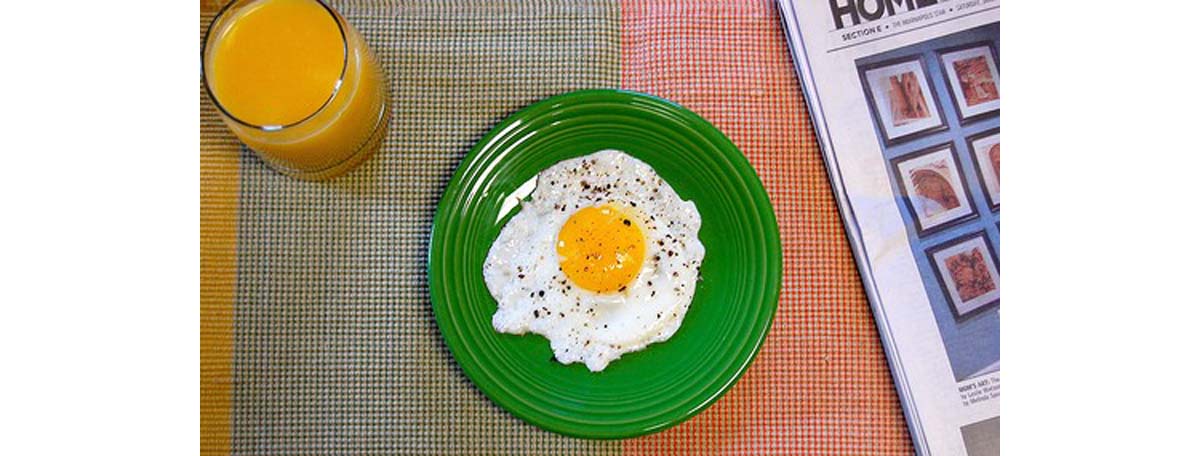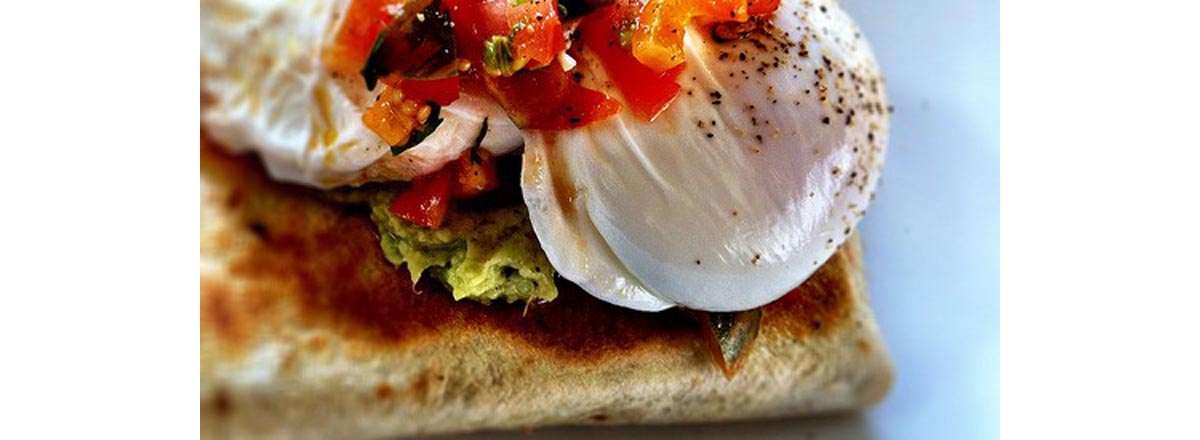A team of researchers at the School of Medicine at the University of Missouri at Columbia tell us that, at least for teenage girls, eating a high-protein breakfast is the secret to eating less throughout the day.
The University of Missouri researchers recruited 20 female students aged 17 to 19 who habitually skipped breakfast. They were asked to consume a 350-calorie cereal breakfast, a 350-calorie beef and egg breakfast, or to continue skipping breakfast for 7 days. Participants in the study were asked to keep a diary of the food they ate for the week.

The next week they were brought into the research lab for a 10-hour session in which included filling out appetite and satiety questionnaires, having brain scans done while being shown pictures of food, an all-you-care-to-eat dinner meal, and blood workups to measure levels of appetite-related hormones.
The researchers found that:
-
Eating breakfast helped the young women in the study control their appetites better than eating nothing at all.
-
Eating a high-protein breakfast helped the women control their appetite better than eating a high-carbohydrate, cereal-based breakfast.
-
The high-protein breakfast, but not the high-carbohydrate breakfast, reduced snacking on high-fat foods compared to eating no breakfast at all.
-
The high-protein breakfast, but not the high-carbohydrate breakfast, reduced evening snacking compared to eating no breakfast all.
-
Eating a high-protein breakfast did not, however, reduce total number of calories consumed at an all-you-care-to-eat buffet.
The research team found that skipping breakfast activates several appetite centers in the brain, in the amygdala, hippocampus, and midfrontal corticolimbic system
Eating the high-protein breakfast, but not eating the high-carbohydrate cereal-based breakfast, reduced the production of the hormone ghrelin and YY neuropeptides. Ghrelin is an “I'm not full yet” signal that the digestive tract sends to the brain. Neuropeptide YY increases sensitivity to pain so that it can literally become painful not to eat.
It is possible, of course, that these results would not apply to males, children, or older adults. However, there have been many other studies to suggest that breakfast really does help just about anyone control appetite.
Ten Useful Science-Based Facts About Eating Breakfast and Feeling Full The Rest Of The Day
The University of Missouri study is hardly the first investigation of the satiating effects of eating breakfast. No fewer than 263 other scientific studies have looked at the links between breakfast eating and controlling appetite the rest of the day. Here are 10 highlights from the research literature.

1. In teenage males, the combination of protein and fat at breakfast is key to daytime appetite control.
Researchers at the Medical University of Vienna (Austria) found that low-fat resulted in the least satisfaction of all breakfast foods tested, but a combination of whole-milk yogurt and walnuts resulted in the most.
2. Dieters who eat about half their daily calories at breakfast (for example, 700-calorie breakfast, 500-calorie lunch, 200-calorie dinner) rather than at dinner (for example, 200-calorie breakfast, 500-calorie lunch, 700-calorie dinner) lose more weight.
These dieters also produce less insulin, so any “oopsies” on the diet plan are less likely to result in weight gain.
3. Eating sugary breakfast cereals or doughnuts gives results in a boost of energy faster in the morning, followed by a mid-morning crash.
Eating lower glycemic index foods (complex carbohydrates rather than simple sugars) raises energy levels more slowly, but with less of a mid-morning “crash” that motivates the munchies.
4. Meal replacement beverages keep you feeling full for about 15 minutes.
While it is possible to feel better as a result of eating less, shakes and smoothies as meal replacements do not help manage hunger.
5. If you are looking for a way to control cravings mid-morning, go nuts.
Peanuts and tree nuts at breakfast reduce cravings the rest of the day. Peanuts, one study found, are especially helpful for diabetics.
6. In children under the age of 12, choice of breakfast food has relatively little effect on feeling full.
Researchers at the Commonwealth Scientific and Industrial Research Organisation in South Australia found that choice of breakfast food had no significant effect on feeling full, or ability to do school work, in elementary and middle school-aged children. There are other reasons not to feed children sugar-sweetened breakfast cereals, but appetite control is not one of them.
7. Choosing lower glycemic index foods at breakfast helps reduce insulin production, so less fat is stored, but when mixed meals (containing fat, protein, and carbohydrates), lowering glycemic index does not assist appetite control.
Actually, any mixed meal has a lower glycemic index, because the digestive system needs longer to process protein and fat than it needs to process carbohydrates.
8. Eating bacon or ham at breakfast reduces hunger before lunch.
Or at least this is what scientists at the Danish Meat Research Institute tell us.
9. Eating ginger with breakfast helps overweight men with daytime appetite control.
It also stimulates burning of calories.
10. Drinking green tea with breakfast increases feeling of fullness.
Researchers at Lund University in Malmö, Sweden found that drinking green tea at breakfast did not have a measurable effect on insulin release and fat storage, but did result in a greater feeling of fullness and satiety all day long.
- Jakubowicz D, Barnea M, Wainstein J, Froy O. High caloric intake at breakfast vs. dinner differentially influences weight loss of overweight and obese women. Obesity (Silver Spring). 2013 Mar 20. doi: 10.1002/oby.20460. [Epub ahead of print] PMID: 23512957.
- Leidy HJ, Ortinau LC, Douglas SM, Hoertel HA. Beneficial effects of a higher-protein breakfast on the appetitive, hormonal, and neural signals controlling energy intake regulation in overweight/obese, "breakfast-skipping," late-adolescent girls. Am J Clin Nutr. 2013 Apr. 97(4):677-88. doi: 10.3945/ajcn.112.053116. Epub 2013 Feb 27.PMID: 23446906.
- Photo courtesy of ultrakml on Flickr: www.flickr.com/photos/ultrakml/7805844488


Your thoughts on this